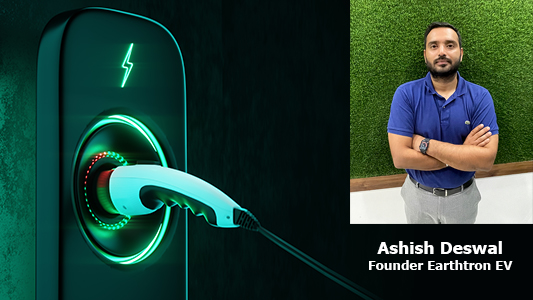India, a rapidly growing automobile market, is expected to have 44 million electric vehicles (EVs) by 2030, making it the world’s third-largest EV market. Indian government has implemented tax incentives, subsidies for EV manufacturers and buyers, and the Faster Adoption and Manufacturing of Hybrid and Electric Vehicles (FAME) scheme to promote EV adoption. The International Energy Agency (IEA) reported a double-digit increase in global electric vehicle (EV) sales in 2021, reaching 16.5 million units worldwide.
Being the world’s third-largest oil importer, India has set a goal of EVs representing at least 30% of all road traffic by 2023. This ambitious adoption rate will have significant environmental and economic impacts. The country’s 1.4 billion population and rapidly growing economy make it an influential player in the global EV market. The transition to EVs will reduce India’s dependency on oil, disrupting global oil markets. India’s full adoption of electric vehicles will be a significant step towards sustainable development in global mobility. However, the adoption of EVs in India is still in its nascent stage, with EVs accounting for only 4.7 per cent of total vehicles sold in 2022; a key challenge that remains is the lack of an EV robust charging infrastructure.
Need for a robust charging infrastructure
A well-developed charging infrastructure is crucial to encourage more people to adopt electric vehicles. Range anxiety, the fear of running out of battery power without a nearby charging option, is a significant barrier to EV adoption. A robust charging network alleviates this concern and increases consumer confidence in EVs. Developing an EV charging infrastructure can create new economic opportunities as it can lead to job creation in the manufacturing, installation, maintenance, and operation of charging stations. Additionally, it can stimulate the growth of the EV industry, attracting investments and technology development.
As the charging station market keeps evolving at a steady pace, several new innovative trends have been emerging in recent years.
Charging station operators and EV manufacturers partnerships
Partnerships between charging station operators and electric vehicle (EV) manufacturers are critical for the growth and success of the EV ecosystem. These collaborations offer several benefits to both parties and ultimately help promote the adoption of electric vehicles. In order to build charging infrastructure all around the nation, several charging station operators in India have joined up with EV manufacturers. EV manufacturers are collaborating with charging station operators to expand the charging infrastructure, ensuring that their customers have convenient access to charging facilities.
Renewable energy resources
Many owners of charging stations fuel their stations using sustainable energy sources, such as solar energy. In addition to lowering the carbon footprint of the charging stations, it also aids in resolving the problem of power shortages in some regions of the nation.
Expansion in public places
The installation of EV charging stations has been made mandatory in India for all public parking lots and gas stations with an area greater than 5,000 square metres, through which it is anticipated that there will be a major rise in charging stations around the nation.
Fast charging technology
Fast charging technology, which shortens the time it takes for EVs to charge, is being adopted by many charging station operators across the country. Fast charging infrastructure is critical for long-distance EV travel, enabling drivers to cover longer distances in a single day. This promotes the use of EVs for road trips and intercity travel.











